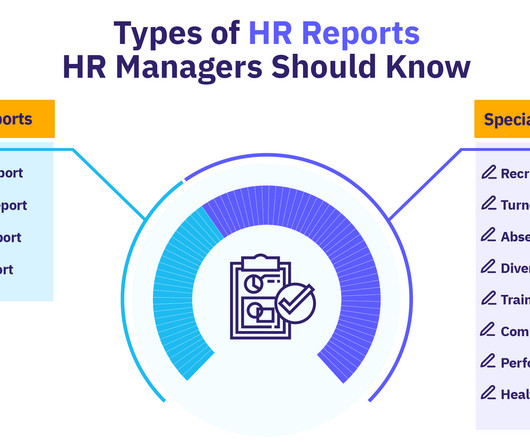How HR Can Create a Comprehensive Talent Strategy
AIHR
MARCH 16, 2023
The best talent strategies help the organization meet its goals, create a competitive edge, and meet the career development aspirations of present and future talent. Talent development and retention An Employee Benefits News study shows that the average cost of losing talent is 33% of a company’s annual revenue.












Let's personalize your content